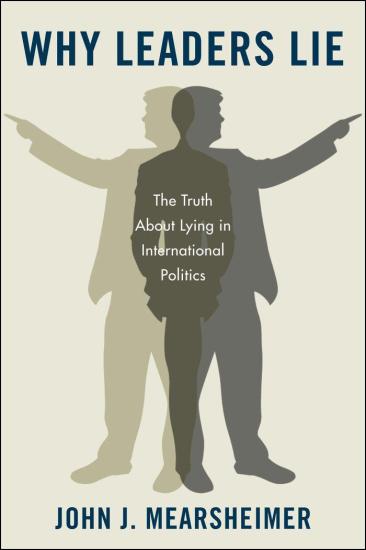
Summary:
Tags: [CNTY:USA, ZDC:SHXX, ZDC:YWSJ, Lang:en]
In
Why Leaders Lie, Mearsheimer provides the first
systematic analysis of lying as a tool of statecraft,
identifying the varieties, the reasons, and the potential costs
and benefits. Drawing on a wealth of examples, he argues that
leaders often lie for good strategic reasons, so a blanket
condemnation is unrealistic and unwise. Yet there are other
kinds of deception besides lying, including concealment and
spinning. Perhaps no distinction is more important than that
between lying to another state and lying to one's own people.
Mearsheimer was amazed to discover how unusual interstate lying
has been; given the atmosphere of distrust among the great
powers, he found that outright deceit is difficult to pull off
and thus rarely worth the effort. Moreover, it sometimes
backfires when it does occur. Khrushchev lied about the size of
the Soviet missile force, sparking an American build-up.
Eisenhower was caught lying about U-2 spy flights in 1960,
which scuttled an upcoming summit with Krushchev. Leaders are
more likely to mislead their own publics than other states,
sometimes with damaging consequences. Though the reasons may be
noble--Franklin Roosevelt, for example, lied to the American
people about German U-boats attacking the destroyer USS Greer
in 1940, to build a case for war against Hitler-they can easily
lead to disaster, as with the Bush administration's falsehoods
about Iraq's weapons of mass destruction.
There has never been a sharp analysis of international
lying. Now a leading expert provides a richly informed and
powerfully argued work that will change our understanding of
why leaders lie.